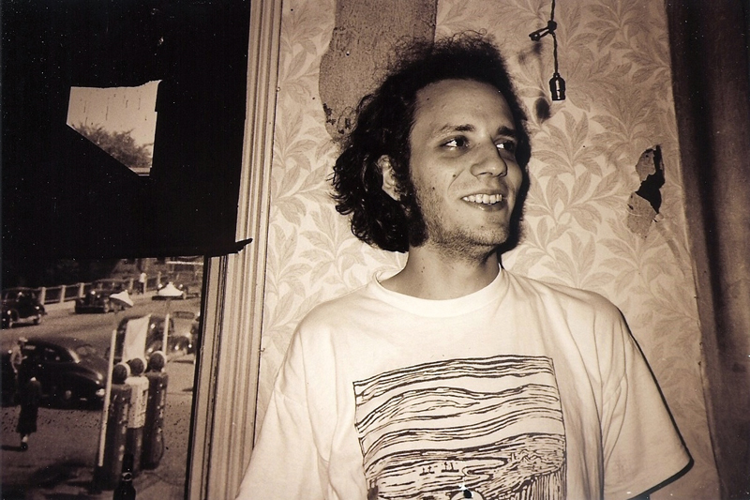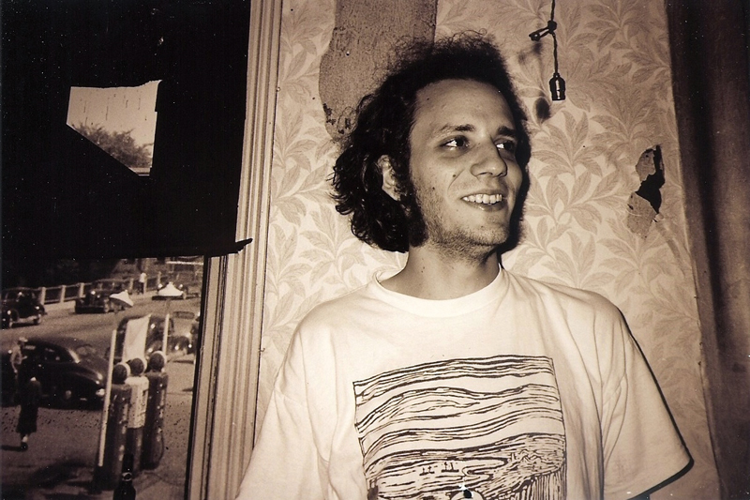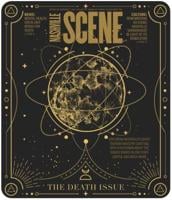
Paul Booker

Paul Booker
In a city overflowing with musicians, Paul Booker was one of Nashville's most distinctive. A constant presence in the local music scene for more than three decades, he led or played in a succession of bands that all bore his uniquely languorous style: Medicinal Porpoises, CYOD, Dave Cloud's Gospel of Power and, most recently, Paul Booker and the Dynamite Operators.
Booker's death from lung cancer on June 27 at age 49, after a brief but devastating illness, leaves this city with one less original voice, one less witness to what made Nashville a special place long before it became fodder for night-time soap operas and a backdrop for drunken bachelorette parties. "Paul lived and breathed music, and he thought of it as the highest form of communication," says longtime friend and collaborator Matt Bach, production coordinator at the Scene. "It wasn't about perfection. It was about getting the point across."
Whether he was leading his own group or collaborating with fellow traveler Dave Cloud, Booker got that point across with a guitar sound that snaked through time and space like a slowly unwinding coil of smoke. Within that sound lay a web of musical touchstones: the classic rock of Alice Cooper; the burnt, hazy psychedelia of the Dream Syndicate and Rain Parade; the spectral rockabilly and blues of The Cramps and The Gun Club; the medicated bliss of Spacemen 3. "He's the only person I know who could consistently play behind the beat," Bach says. "That's what made his music feel so heavy and laid-back."
Booker's roots in the local music scene go back to the early '80s, when he joined Hillsboro High School classmate Jason Cook's Wax Dolls, among the earliest rumblings of underground rock 'n' roll in an otherwise sleepy town. "He was a complete and utter square-looking person," Cook recalls. "A straight-A student. You thought he was going to go on and be an architect, but he took another path and went on a musical journey."
That journey took Booker to Knoxville for college, where he played in the band Beyond John, then back to Nashville, where he forged an enduring friendship with bassist Matt Swanson, with whom he formed Medicinal Porpoises in the early '90s, rehearsing for a time among the mannequins in the abandoned Harvey's department store on Church Street. "He was way more adventurous about playing music than a lot of people I was hanging out with," Swanson tells the Scene. "There was never any 'I fucked up' or 'Sorry.' Paul didn't quite see it that way. He was never too hung up on what he was doing."
Along with Bach and Swanson, Booker formed part of a freewheeling community that hung out at Lucy's Record Shop and Springwater, the longtime gathering place for singers, songwriters and players who didn't quite fit the Music City mold. Chief among those was the late Dave Cloud, whose keen intelligence, savvy humor and love of rock 'n' roll abandon aligned perfectly with Booker's own sensibilities. "Like Dave, Paul had to relate to what he was singing about, or he couldn't do it," Bach says. "The expression of the song was more important than how you played it. That's why, when you heard Dave Cloud or Paul Booker play a cover, it never sounded like the original."
In his laconic way, Booker embraced people with the same openness that marked his exploration of music, and that warm, laid-back spirit was integral to forming a musical community in Nashville of the '80s and '90s. "It's hard to communicate to people nowadays what lifelines people like Paul were back then," observes Chris Davis, another longtime catalyst in the local scene. "People were drawn to Dave and Paul because they were so accepting and nonjudgmental and inclusive — and they were both incredibly smart."
The mix of open-mindedness and unfettered creativity that Booker helped foster ultimately fed the creation of a small but thriving music scene that has evolved into the dynamic and still expanding nexus of bands, clubs and studios that Nashville has become today. But in Davis' recollection, there was a moment back in the '90s, before anyone was paying attention, when the freedom of the local music scene functioned as a joyously defiant response to the much more polished activity happening on Music Row. "There are certain kinds of expression that come from the freedom you have when no one cares what you're doing," Davis says. "I think the same thing was expressed in the L.A. punk and LAFMS [Los Angeles Free Music Society] scenes."
Until his final days, Booker maintained his bottomless love of music and his sense of humor, expressed in sly jokes and the slow but unmistakable cracking of a wide smile. "His delivery was dry, and his laughter would echo for what seemed like minutes," remembers friend and fellow musician Laurel Parton, "until I found myself laughing at his laughter and us both laughing again. Anybody who has shared a laugh with Paul knows the depth of this experience."
And for those closest to him, Booker's depth is what defined both his music and his life. "He touched people's lives and made them better," says his fiancée, Catherine Hancock. "He loved to have a great time, and he enjoyed his life to the fullest, but at the same time he was so kind, so sensitive."
Following his cancer diagnosis, Booker made a concerted effort to finish work on a Dynamite Operators album he recorded with Steve Poulton of The Altered Statesman last year. Thanks to Poulton's shepherding, Rock Life/Sheep will be posthumously released on Booker's own Independent Films Records this summer.
A GoFundMe campaign has been set up to help cover Booker's funeral and medical expenses: gofundme.com/2buf7ks
Email music@nashvillescene.com






